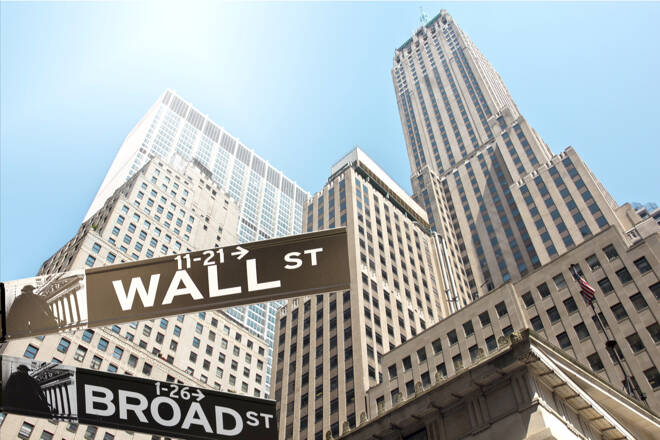Advertisement
Advertisement
Soft CPI Sends Stocks Surging; S&P 500 Gains 2.1% to Hit Highest Since Early May Above 4,200
By:
The drop in US inflation was a validation of hopes that inflation has now peaked and eased Fed tightening worries.
Key Points
- US equities rallied across the board on Wednesday after US inflation data for July surprised to the downside.
- Traders aggressively pulled back on their Fed tightening bets, with a 50 bps September hike now the base case.
- The S&P 500 and Dow Jones both hit their highest levels since early May, with the former surpassing 4,200.
Soft CPI Sends Stocks Surging
US equities rallied across the board on Wednesday after US inflation data for July surprised to the downside, a welcome validation of hopes that US inflation has now peaked and easing concerns about excessively aggressive monetary tightening from the US Federal Reserve. The S&P 500 hit its highest levels since early May above 4,210, gaining 2.1%. The Dow posted a 1.6% gain to also hit its highest since early May. While the Nasdaq 100 was the outperformer of the major indices, posting a 2.85% gain as big tech/growth stocks led the market rally, the index just missed out on printed fresh highs for the month.
All eleven of the S&P 500 GICS sectors rose on Wednesday, though the growth/tech stock dense Information Technology, Communication Services and Consumer Discretionary sectors led the way, bolstered by a sharp post-soft CPI data decline in US yields. Lower bond yields mean a lower opportunity cost of holding so-called “growth” stocks whose valuation is disproportionately based on expectations for future revenue growth, as opposed to current earnings.
Markets Pare Back on Fed Tightening Bets
US Consumer Price Index data for July surprised to the downside and prompted traders to pare back on aggressive Fed tightening bets. The MoM rate of headline inflation was 0.0% in July, below expectations for a drop to 0.2% from 1.3% in June. The headline YoY rate fell to 8.5% from 9.1% in June, larger than the expected drop to 8.7%.
Much of the decline in headline prices owed itself to a 20% decline in average gasoline prices in the US in July versus June. But core measures of inflation also contained promising signs. The core index rose at a pace of 0.3% MoM and 5.9% YoY, below expectations for 0.5% and 6.1%, with the former a deceleration on June’s 0.5% MoM increase and the latter remaining unchanged.
Markets interpreted the data as reducing the need for the Fed to implement a third successive 75 bps rate hike in September. According to the CME’s FedWatch Tool, money markets were last pricing a 62.5% chance that the Fed instead goes with a smaller 50 bps rate hike in September versus 32% one day ago. Analysts were keen to point out that these expectations could easily shift, given that August jobs and CPI data will both be released prior to the Fed’s September confab.
Meta Rallies After Raising $10B in First Ever Bond Offering, Tesla Shrugs of Musk Stock Sale
In terms of major individual movers, Meta Platforms was an outperformer, gaining over 5.0% after the owner of Facebook, Instagram and WhatsApp said it had managed to raise $10 billion from its first-ever bond offering. Tesla, meanwhile, managed to gain around 4.0%, despite pre-market news that CEO Elon Musk had recently sold $6.9 billion in stock.
Musk said that he sold the shares in case he loses his ongoing legal battle with Twitter – he is trying to pull out of a deal to buy the company after making a formal offer to buy the micro-blogging site for $54.20 per share earlier this year. Musk accuses Twitter of having misled him by fudging it’s real human versus bot user numbers.
Analysts said that the news isn’t bearish for Tesla as Musk said that if he wins his legal bid not to buy Twitter then he would buy back his Tesla shares. But legal experts seemed to believe that Musk’s latest move to improve his liquidity position means an increased likelihood that he is forced to go ahead with the Twitter acquisition. Twitter’s share price rose over 3.5%, but at just over $44 per share, remains well below Musk’s offer price.
About the Author
Joel Frankauthor
Joel Frank is an economics graduate from the University of Birmingham and has worked as a full-time financial market analyst since 2018. Joel specialises in the coverage of FX, equity, bond, commodity and crypto markets from both a fundamental and technical perspective.
Advertisement
